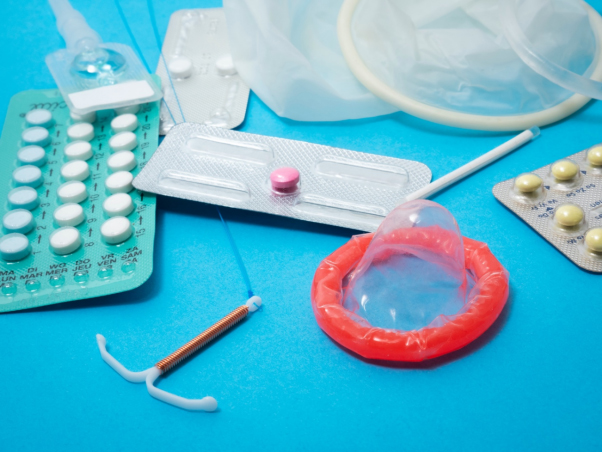Understanding Sexually Transmitted Diseases
Sexually transmitted diseases, or STDs, are diseases that are transmitted from one person to the next, mostly, but not entirely, through sexual activity. STDs were previously known as venereal diseases or VDs. They're one of the most contagious diseases around. According to the CDC, 1 in 5 Americans has a sexually transmitted infection.
STDs are dangerous and necessitate medical attention. Some sexually transmitted diseases, like HIV, are incurable and potentially fatal. You can learn how to protect yourself by learning more about STDs.

Causes of Sexually Transmitted Diseases
Sexually transmitted infections can be caused by viruses, bacteria, and parasites. They cover almost every type of infection. Gonorrhoea, chlamydia, and syphilis are all bacterial STDs. Genital Herpes, HIV, HPV, and hepatitis B or C are all viral STDs. Trichomoniasis is an example of a parasitic STD.

STD-causing microorganisms can be found in sperm, blood, vaginal fluids, and even saliva. The majority of the microorganisms are transmitted through oral, vaginal, or anal intercourse. Some other STDs, like those that cause genital warts and herpes, can also be transmitted by skin contact. You can contract hepatitis B or C through sharing personal things with somebody who has it, like razors or toothbrushes, etc.
Common Types of STDs
Chlamydia
Chlamydia is a sexually transmitted infection that is very common. Chlamydia trachomatis is the bacteria that causes it and anyone can be infected with chlamydia. It can infect a woman's throat, cervix, or rectum. Men can contract it in the urethra (within the penis), the rectum, or their throat.
Chlamydia can be contracted through vaginal, anal, or oral sex with those who are infected. During birth, women can transmit chlamydia to their infants.
If you've previously been infected with chlamydia and recovered from it, you can re-infect yourself by having unprotected sexual intercourse with an infected person.
Chlamydia is a sexually transmitted infection that normally has no symptoms. As a result, you may be unaware that you even have it. Even if a person has no symptoms, they can spread chlamydia to others. If you do get symptoms, they may take weeks to manifest after having intercourse with an infected individual.
Women's symptoms include:
- Vaginal discharge that is abnormal and has a strong odor
- Burning or pain when urinating
- Pain during sexual intercourse
- Lower abdomen ache, nausea, and fever may occur if the illness progresses.
Men may have the following symptoms:
- Unusual discharge from the penis
- Burning or pain when urinating
- Itching or burning around your penis' opening
- One or both testicles are inflamed and swollen (rare)
Gonorrhea
Gonorrhea is a disease that is spread through sexual contact. Young adults are the most affected. Gonorrhea is caused by germs that can enter the genitals, anus, or mouth. You can contract gonorrhea from an infected partner during oral, vaginal, or anal sex. During birth, women can pass it on to the baby.
Symptoms of gonorrhea are not always present.
Men with gonorrhea may experience:
- Penile discharge
- Pain while peeing
It can develop difficulties with the testicles and prostate if left untreated.
Early gonorrhea symptoms in women are frequently minor. Later on, it might cause:
- Bleeding between periods
- Urination pain
- Increased vaginal discharge
It can lead to pelvic inflammatory disease, which can cause complications with fertility and pregnancy if left untreated.
HIV or AIDS
The human immunodeficiency virus (HIV) is a virus that causes infection in humans. It wreaks havoc on a person's immune system by eliminating certain white blood cells that assist in infection defense. This makes a person at risk for dangerous infections and certain illnesses.
The acronym AIDS refers to acquired immunodeficiency syndrome. It is the last stage of HIV infection. It occurs when the person's immune system is severely harmed by a virus. Not everyone who has HIV contracts AIDS.
A person can contract HIV in a variety of ways:
- Through unprotected intercourse with an HIV-positive person. This is the most typical method of transmission.
- Sharing drug syringes or needles.
- Exposure to the blood of an HIV-positive individual
- In pregnancy, birth, or breastfeeding, from mother to baby

Symptoms similar to the flu may be the initial signs of HIV infection, but not everyone experiences symptoms. The symptoms are:
- Chills
- Fever
- Rash
- Sweating at night
- Throat infection fatigue
- Ulcers in the mouth
- Muscle pain
- Lymph nodes swollen
Within 2 to 4 weeks, these symptoms may appear and disappear. Acute HIV infection is the term for this stage.
It develops chronic HIV infection if the virus is not treated. During this period, there are usually no symptoms. If left untreated, the infection will progressively impair the infected person's immune system. AIDS will then develop as a result of the infection.
There is no cure for HIV, but the virus can be made dormant if treated efficiently in time.
Trichomoniasis
Trichomoniasis is a parasitic infection spread through sexual contact. During sex, it can be transmitted from one individual to another. Many people have no signs or symptoms. If you develop symptoms, they will normally appear 5-28 days after you have been infected.
In women, it can induce vaginitis. Among the signs and symptoms are:
- Vaginal discharge that is yellow-green or grey in color
- Discomfort or painful sex
- Odor in the vaginal area
- Urination that hurts
- Vulva and vaginal soreness
- Burning and itching near the genitalia
The majority of guys are asymptomatic. If this is not the case, they may have:
- Irritation or itching inside or on the penis
- Burning sensation after ejaculating or urinating
- Penile discharge
Trichomoniasis can make you more likely to contract or spread other sexually transmitted infections. Pregnant women suffering from trichomoniasis are more at risk of premature delivery and have babies with lesser birth weight.

If you’re sexually active and experience any of the symptoms above, consult a doctor immediately. Even if you don’t experience any symptoms, it’s better to consult a doctor. Now you can speak to a doctor online without a physical visit. TelMDCare brings you an online healthcare service with licensed doctors. We offer consultation for multiple health problems, including sexually transmitted diseases. Our virtual doctor will diagnose you or guide you on what further steps need to be taken. Contact us now or book an appointment.